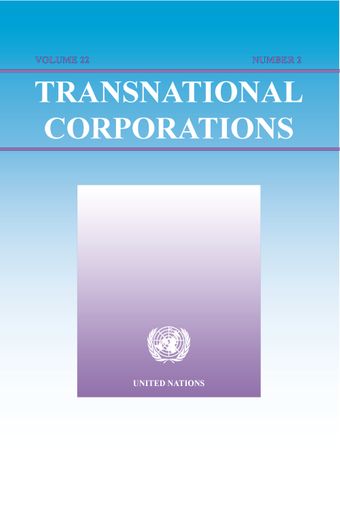-
The pitfalls of an inward-oriented economy: Lessons from the evolution of Brazil and the Republic of Korea
- Source: Transnational Corporations, Volume 22, Issue 2, Dec 2015, p. 1 - 24
-
- 14 Dec 2015
Abstract
Through the early 1980s, the Republic of Korea had lower per capita income than Brazil. However, in the ensuing decade and a half, the economy of the Republic of Korea grew rapidly and by 1996, the country was admitted to the OECD. In contrast, Brazil failed to make significant progress, becoming stuck in a so-called “middle-income trap”. In this paper we present a comparative analysis of the economies of the Republic of Korea and Brazil and draw some general lessons for successful catchup strategies and economic development policy. We identify three key factors underpinning the Republic of Korea’s successful catch-up: 1) well planned and consistent government policy; 2) technological specialization; and 3) the nurturing of corporate champions. The economic development process is enormously complex and what works for one economy may not work for another due to contextual differences. Nonetheless, we argue that the successful experience of the Republic of Korea offers some general lessons from the standpoint of government and industrial policy, as well as firm strategy.
© United Nations



